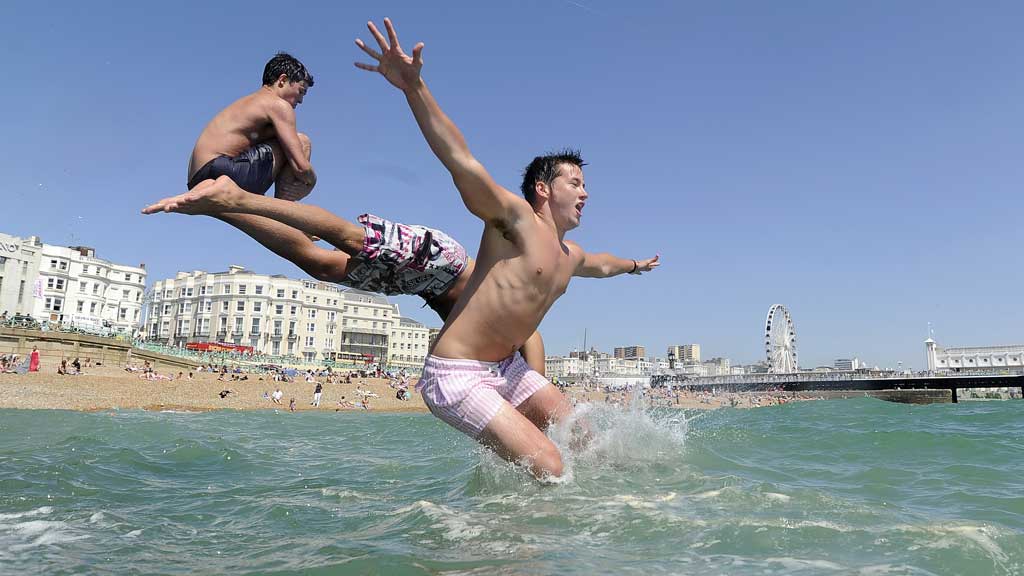‘Generation Citizen’ says stop stereotyping us
Teenagers today are more socially engaged than previous generations but feel that negative stereotyping is affecting their chances of finding a job, according to a report.

The Demos report, “Introducing Generation Citizen”, says four-fifths of 14 to 17-year-olds think their age group is unfairly represented in the media, with “unemployment and access to work” their main concern.
The think tank polled 1,000 teenagers and their teachers and found that most of them believe young people are more concerned about social issues than earlier generations.
This finding chimes with the government’s latest community life survey, which found that three quarters of 16 to 24-year-olds had volunteered in the past year.
Volunteering activities include helping out at primary schools and old people’s homes and running campaigns.
Caring, not yobbish
When secondary school teachers were asked to define young people, the most common words they used were caring, enthusiastic and hard working, while they were associated in the media with binge drinking, yobbish behaviour and crime.
The report says young people are sceptical about traditional Westminster party politcs, with two thirds saying charities and social enterprises are more likely to achieve change than MPs.
They are also big users of social media, with 87 per cent believing this is the best way to achieve their goals. Teachers agree: 84 per cent say using social media is as effective as traditional means of communication.
Jonathan Birdwell, the author of the report, said: “Some have referred to the next generation – after Generation Y – as Generation C because they are the most ‘connected’ generation in history.
“Our research suggests that the Gen C title is apt for another reason – because the next generation could be the most active citizens we’ve seen in a generation.”
Teen 2014 – why are we worse off than our parents?
The Demos report paints a positive image of teenagers, but one 19-year-old is facing the music on Wednesday at a court hearing in the US.
The pop star Justin Bieber, considered clean cut and wholesome by parents, was arrested in January for alleged drink driving and drag racing, which he denies.
More than 175,000 people have signed a petition on Whitehouse.gov calling for him to be deported to his native Canada on the grounds that he is a "terrible influence on our nation's youth".
A positive influence on British teenagers is Olympic champion Jessica Ennis-Hill, who has been voted the most inspirational figure in the world by under-25s in a new survey.
He told Channel 4 News that while it was unclear why teenagers were volunteering in greater numbers, “past research into motivations suggest that a mixture of self-interest and altruism are important for young people – with key reasons for volunteering including learning new skills, being good for career and making new friends”.
He added: “This isn’t surprising given our research shows finding a job is the biggest worry of young people at the moment.
“But importantly, even if CV building has driven initial engagement, volunteers report a huge range of altruistic benefits – for example, over 90 per cent said it ‘made them care more about others’.
No compulsion
“Although the government and schools do not ‘force’ young people to volunteer, elements of social action have been integrated into the curriculum in Scotland, for example.”
With high youth unemployment, teenagers who volunteer, and their teachers, say they reap benefits in terms of wellbeing and employability.
Michael Lynas, chief executive of the National Citizen Service, which supported the report, said: “‘Generation Citizen’ is the true face of today’s teenagers. Contrary to stereotypes, we have found a huge demand for opportunities to engage among today’s teenagers, with over one million hours of service given by our participants so far.”
-
Latest news
-
Tim Booth of the band James’ on agism in music, topping the charts and AI6m

-
As India goes to the polls in the world’s largest election – what do British-Indians think?6m

-
Tees Valley: Meet the candidates in one of the biggest contests coming up in May’s local elections4m

-
Keir Starmer says public sector reform will be a struggle7m

-
Nicola Sturgeon’s husband Peter Murrell charged with embezzlement of funds from SNP1m

-




